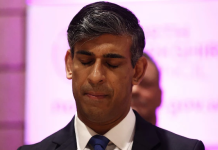Sheikh Hasina finally had to resign amid the deteriorating situation in the country. There are reports that she has left Bangladesh and reached a safe place abroad. What are the reasons due to which anger against Sheikh Hasina has increased in Bangladesh in the recent past and she has become unpopular? Due to this, such a situation has arisen in the country which has shaken her throne.
Sheikh Hasina’s government in Bangladesh has had to face many negative things during its long tenure. In recent times, she was also accused of suppressing the opposition and being a dictator. There was a movement going on in the country for more than a month. The movement first started against the quota in jobs for students, but then it turned into a widespread anger against the Sheikh Hasina government. People from every section of the society were involved in it. It is believed that the unity of the opposition played a big role behind the scenes.
Sheikh Hasina was the Prime Minister of Bangladesh for a total of about 15 years. Her first term was from June 1996 to July 2001. After winning the subsequent elections, she has been in this position since 6 January 2009. She was the longest serving Prime Minister in the history of Bangladesh but she also became a dictator with time.
1. Suppression of dissent
Hasina’s administration has been accused of systematically suppressing opposition voices and dissent. Her long reign in power was marked by the arrest of opposition leaders, crackdown on freedom of expression and suppression of dissent. She has left no stone unturned in suppressing protests as well as arresting opposition leaders and activists. Her government’s response to recent protests has also been particularly violent, with reports of excessive use of force against protesters, leading to massive casualties.
2. Democratic norms were destroyed
Critics argue that Hasina’s government weakened democratic processes and institutions. During her tenure, elections have been surrounded by allegations of rigging and violence. Government agencies kept putting opposition leaders in jail or filing a number of cases against them by conspiring at her behest. Overall, the police and other government agencies did a lot of work to trap opposition leaders. Due to concerns over fairness, the major opposition parties boycotted the elections this time too. This created a strange situation in the country. Anger was brewing inside for a long time.
3. Human rights violations
There have been numerous reports of human rights violations under Hasina’s government, including enforced disappearances and extrajudicial killings. International organizations have documented these abuses, resulting in sanctions from Western countries against some security forces accused of these violations.
4. Reservation in jobs
Recently, the Sheikh Hasina government had given quota in jobs to those people whose family members had fought for the country’s independence in 1971. Students got angry against this. Protests started happening everywhere. This protest of students spread across the country. Violence took place. Although the Supreme Court of Bangladesh abolished this quota, by then the whole country was on fire. The opposition also fueled this movement. As a result, anger increased in Bangladesh. For the last three days, it seemed as if there was no such thing as a government in Bangladesh. There was widespread violence, arson and chaos.
5. Media censorship
The Hasina administration has faced criticism for curbing press freedom. Journalists and media outlets critical of the government often faced harassment, legal action, or shutdowns. This adversely affected freedom of expression in the country. Many people feared repercussions for reporting on government activities.
Hasina is a “shrewd” politician, but history will now remember her as a leader “who remained in power not through popular mandate but through repression.” She later became the victim of national anger and had to flee the country like an unpopular dictator.











